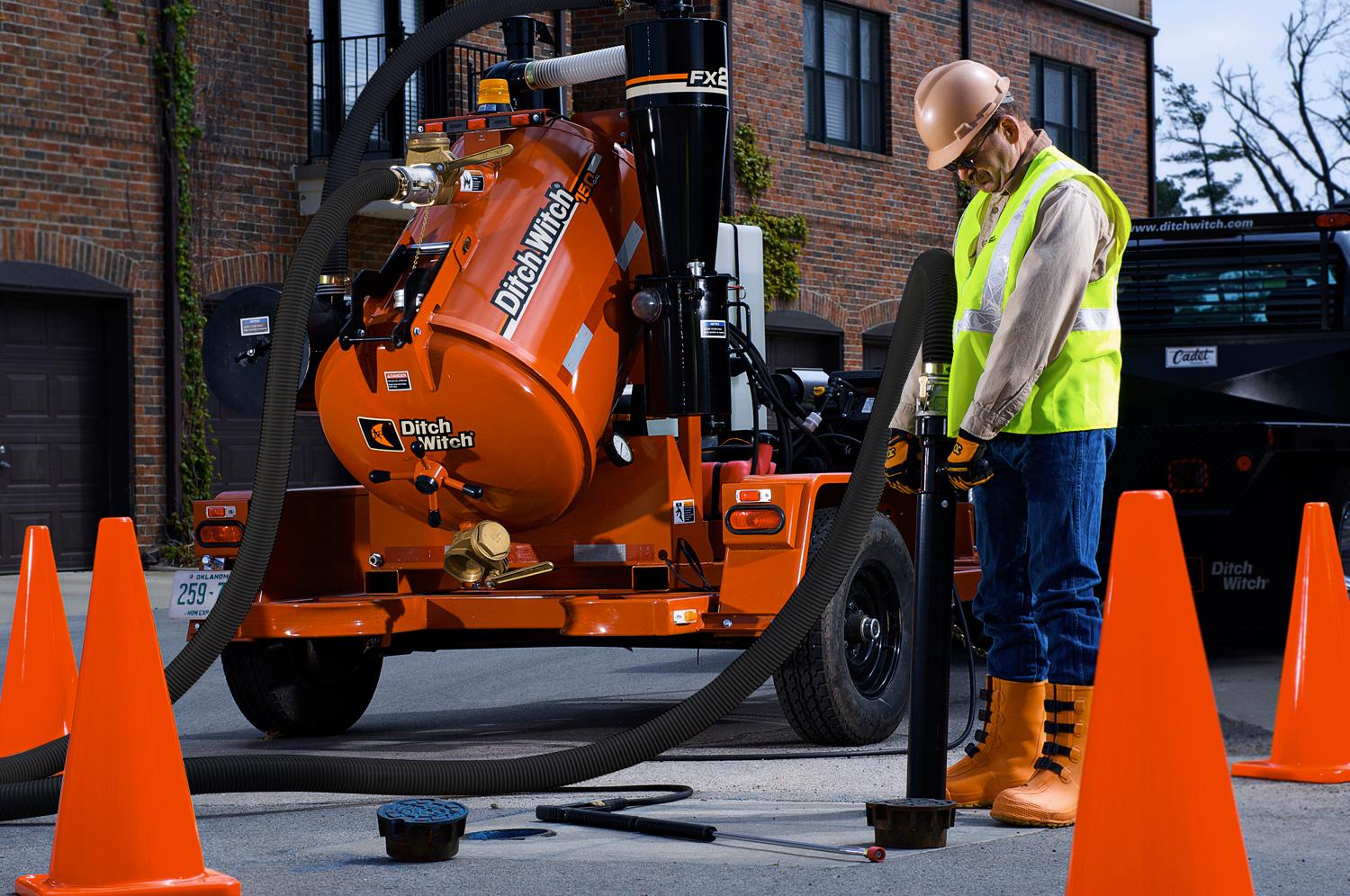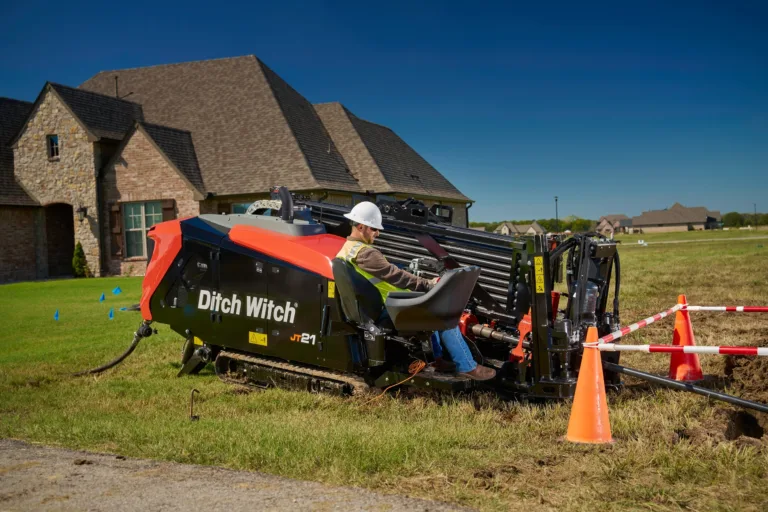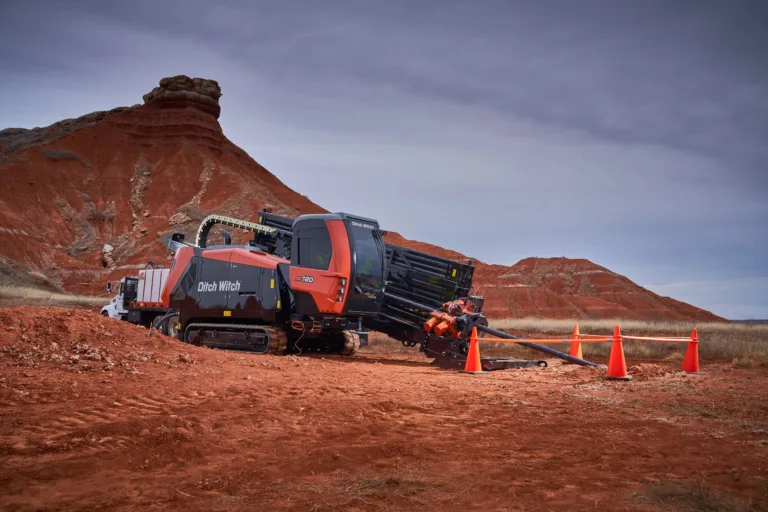A Rental Fleet’s MVP – Save Customer Time And Money With Vacuum Excavators
By Chris Thompson
Today’s utility contractors and landscape professionals know that time is money, especially as they hustle to keep up with an increased volume of work and an ongoing labor shortage. As contractors and landscapers consult you, they are looking for equipment that will keep them moving efficiently through time-consuming and often difficult jobs. A solution you can provide to help those looking for a practical solution to a variety of job-site problems is a vacuum excavator.
Vacuum excavators are some of the most versatile machines on the market for landscape and utility work. While traditionally used on horizontal directional drill (HDD) job sites, operators are finding innovative ways to use vacuum excavators to boost rental ROI. They can be used to expose utilities safely before working in areas with congested underground environments. They’re also ideal for tight work areas, like residential yards, where traditional equipment won’t fit.
Here are three key reasons why a vacuum excavator is the most valuable machine to have in your rental fleet that will help you increase profits by providing customers with a flexible, low-maintenance machine that helps them increase efficiency and take on a variety of tasks.
Increased job-site flexibility
Historically, vacuum excavators have been used on HDD job sites to expose existing underground utilities and for job-site cleanup. Today, they’ve found their way onto residential and landscaping job sites as they allow operators to excavate near sensitive areas and in areas where traditional methods are unable to get the job done. For example, trenching near a structure like a house, shed or fence can be challenging due to the machine’s size and tight job site. This is where a vacuum excavator becomes a handy tool, allowing landscapers or utility contractors to use a vacuum excavator to open a trench.
Furthermore, on job sites with space restrictions, landscapers can park their vacuum excavator up to 100 ft. away from the trench location and reach the site with their vacuum excavator wand – which is smaller and more flexible than a trencher and can easily maneuver in these tighter areas. This flexibility simplifies the trenching task for operators and helps prevent any accidental damage to existing structures.
A vacuum excavator also provides flexibility when it comes to a variety of ground conditions. There are five main ground conditions that operators may deal with on a job: rock, sandstone, clay, topsoil and sand. Landscapers, specifically, can easily encounter more than one of these conditions on a single job site. In these situations, a vacuum excavator allows them to switch between air or hydro excavation depending on the ground condition and the delicacy of the surrounding environment. This allows crews to work quickly with one machine, rather than going through the process of renting multiple machines and dragging out the time-consuming task. This versatility helps renters complete the job with minimal damage and disruption to surrounding utilities and environments.
Endless possibilities
In addition to exposing utilities or finishing a trench, a vacuum excavator can help landscapers and other contractors with more specialized or niche tasks. From cleaning out manholes and vehicle wash pits to landscaping beds, parking garages and nearly anything that’s been flooded with water, like basements, bathrooms, storm shelters and even sand bunkers on golf courses, the vacuum excavator can be used in countless ways. For example, utility installation crews are using vacuum excavators to dig thin trenches for irrigation line installation and leaving behind little to no evidence that they were even there.
In addition, landscape professionals are using the suction tool of the excavator to remove and clear out old mulch and debris from a flower mulch bed without the worry of damaging homeowners’ flowers, grass or well-cultivated vegetation.
Arborists and tree care professionals are using vacuum excavators for tree installation and growth stimulation. Whether installing a young 5-ft. tree or maintaining a mature 20-ft. tree, vacuum excavators can help loosen up the soil to create a more stable root foundation and encourage proper root grow-out.
Regardless of the task, a vacuum excavator helps operators save time and labor, while also reducing surface disruption in the excavation process.
Low maintenance
A key benefit of vacuum excavators is that they have minimal maintenance requirements — and the ones they do have are simple.
Manufacturers are designing their vacuum excavators to eliminate daily maintenance and grease points, allowing operators to focus on their job site tasks. The most important daily maintenance task for operators is to always dump and clean the debris tank and empty the freshwater tank at the end of every day. This prevents complications that could limit vacuum excavator productivity.
In addition, many of the costs endured are wear parts, such as the nozzle. It is important to never use the nozzle as a shovel or pry bar. Putting the nozzle into the dirt can cause damage to the wand and result in costly downtime.
Functionality and serviceability improvements always are being considered and made by manufacturers. For example, some machines now have liftoff power pack doors for greater access to maintenance points, and improved filtration systems minimize filter cleaning frequency and increase component life.
If used properly, vacuum excavators offer a low-maintenance solution with parts that are often protected from excessive wear and tear.
Take on tough tasks with ease
With so many options for equipment to bring onto your rental fleet, it can be tough to weed through all the possibilities. A vacuum excavator’s versatility, countless possibilities and extremely low maintenance requirements make even the most tedious and time-consuming jobs simple. Ultimately, vacuum excavators can allow you to provide your customers with an equipment solution that helps them work safely and efficiently on a variety of tough tasks, while also increasing their bottom line and yours.
Chris Thompson is vacuum excavation product manager for Ditch Witch, Perry, Okla., a manufacturer of underground utility construction equipment.
Article originally appeared on ARARental.com






